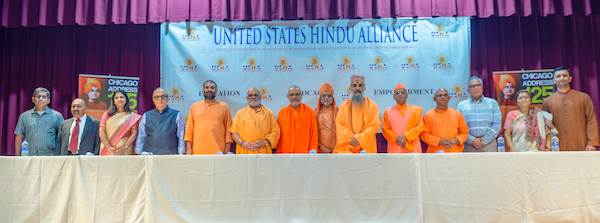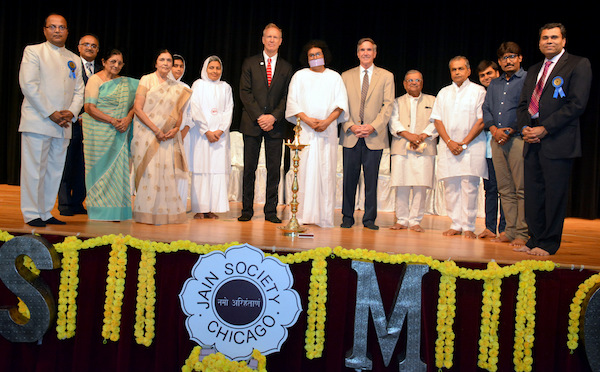

Ramadan is pronounced Ramzan in the Subcontinent, Iran, Turkey, and the Central Asian Republics wherever the Persian linguistic influence exists, elsewhere in the world, it is Ramadan. In the Arabic language, “Z” is “D” in most words. This article has three sections: The Spirit, Politics, and Rituals of Ramadan.
The spirit of Ramadan
One’s birth to the last rites of life, every moment in between, is laden with rituals, even though some of us may deny it. Indeed, whether we go to the gym, eat, sleep, wear clothes, drive, or talk on the phone, we follow rituals.
Rituals signify the milestones of our daily life. Every significant moment of the day is a ritual. It is an unwritten way of measuring our progression, a memory
pattern to bring discipline to our actions. Training is necessary to do things on time, manage personal relationships, drive to a destination, or keep within budget. The result of disciplined behavior is worthwhile for most people. When joyous, whether we are theists or not, we have to express that sentiment. Otherwise, a sense of incompleteness lingers in our hearts.
Every faith is composed of a set of unique rituals to bring discipline and peace to human life. Fasting is one of the five essential rituals that Muslims around the world observe.
Ramadan is the ninth month of the Islamic lunar calendar and observing with a ritual precision; it is annual training or a refresher. It requires one to abstain from food, drink, intimacy, ill-will, ill-talk, harmful actions, and other temptations from dawn to dusk, every day for a full month.
One has to rise above his or her baser desires. Islam gifts this month to
its followers to teach discipline to bring moderation to their daily lives.
Although Ramadan is popularly known in the west for its culinary delicacies and fancy iftars (ceremonial breaking of fast at sundown), the spirit and intent of Ramadan lie in a human transformation in a month-long inner spiritual journey of finding oneself in tune with spirituality.
God does not need the hunger or thirst of someone who hurts others, violates their dignity or usurps their rights said Prophet Muhammad (PBUH). The fasting of the stomach must be matched by the dieting of the limbs. The eyes, ears, tongue, hands, and feet all have their fasts to undergo. The tongue’s temptations, for example — lies, backbiting, slander, vulgarity and senseless argumentation — must be challenged and curbed to maintain the integrity of the fast.
The consciousness of behavior and vigilance over action are the most profound dimensions of fasting: the fasting of the heart focuses on the attachment to the divine. That is when Ramadan becomes a source of peace and solace, just as Christmas goes beyond the rituals to bring forth kindness, charity, and caring.
True fasting is self-purification; from this comes an abundant inner life that brings about values such as justice, generosity, patience, kindness, forgiveness, mercy and empathy — values that are indispensable for the success of the community.
Ramadan will come and go with such stealth that we cannot but be reminded of our mortality. What is it that we value, and why? Habits, customs, even obsessive behavior like smoking can be curtailed with relative ease in the face of a higher calling.
Politics of Ramadan
Politics plays a crucial role in our Temples, Synagogues and Churches, Mosques are no different. For the moon sighting, a few scientifically-inclined-Muslims have adopted NASA‘s calculations believed to be precise. However, four different traditions are operating concurrently; i) Strictly Calendar, ii) NASA and iii Sighting with bare eyes, and iv) sighting by others in the community.
Muslims around the world will begin fasting from Thursday, April 23, 2020, and for a whole month after that, however, for some of them, it will start (only) if the moon is sighted.
The traditions of Ramadan
It’s a celebration time when Muslims around the world anxiously wait for the first moon of the ninth Lunar month to appear in the sky. The families gather in their backyards, or get on the nearest hillock or climb on top of their homes, and wait for the pencil-thin moon to appear on the horizon, and when it does, Ramadan begins.
Right after the moon is sighted, the announcement goes that Ramadan has started.
The first evening, mosques hold “Taraweeh” prayers – in for the next 29 to 30 days, they recite a chapter each day for the full month. Due to Corona, this year, every mosque around the world has canceled the congregational prayers and asked to pray at home.
As the Christians do the count down from the first day of Christmas or Hindus express devotion for each one of the nine days through Navaratri or the Jews follow eight days of Chanukah, Jains observe eight days of Paryushan. Others follow a similar path, and the Muslims count the next 29 to 30 days with a sense of duty.
Every day, with small variations in practices, families rise early around 4:00 AM and gather up in the kitchen to participate in preparing and cooking. Then the family sits around, says a short blessing, and eats the meal. Everyone has to finish off the food and water intake five minutes before sunrise or the morning call for prayers known as Azan or Adan.
Then everyone used to go to the mosque to pray, but this year, everyone will pray at their homes.
Throughout the day, a conscious effort is made to abstain from food, water, or temptations that are detrimental to self-discipline. Those who do not observe fasting, honor the ones who do, by not eating or drinking in their presence.
One of the most appealing aspects of Ramadan is the domino effect other Muslims have on you to guard yourselves against greed, anger, ill-will, malice, hate, jealousy, and other ills of the society. One feels pious during the month. Of course, there would always a small percentage in a group who do not receive that wisdom.
When the time to break the fast approaches towards the sundown, anxiety builds up, it is almost like the countdown of seconds when the space shuttle takes off—Muslims attempt to be in the congregation or team up with some. A prayer call (Azan) signifies the time to break the fast.
Prophet Muhammad had initiated a healthy way of breaking the fast; it was graduating the empty stomach with snacks like dates, fruits, and veggies to prepare the digestive system for a full meal after the prayer break. The dates are the most popular item around the world, they are chewy, meaty, and tasty after a long day of fasting, and dates are also a preferred item as it was for the Prophet. It has the right nutrients to give one a smooth transition from fasting all day to eating a full meal.
The breaking of fast, also known as “Iftar,” has become a community event. It is an excellent opportunity for friends of Muslims belonging to other faiths to host the Iftars. It is a way to bond, connect, and build cohesive societies. Unfortunately, this year, no one is holding the iftar parties.
President Clinton started the tradition of holding an Iftar party carried forward by President Bush and then-President Obama, and they invited a few Muslim leaders from around the United States. Trump held the iftars for the Muslim Ambassadors. It is a major social event for the politicians, just as it is with Christmas, Rosh Hashanah, Diwali, and other festivities.
At the end of the 29th or 30th day, depending on the moon sighting, NASA, or other traditions, the fasting would come to an end with the celebration. It is Chandni Raat or the moonlit festivities. Usually, the evening is spent on last-minute shopping.
The next day is Eid or festivity. It is a significant event, and Muslims gather in large spaces and perform their thanksgiving prayer. The traditional greetings are “Eid Mubarak, Ramadan Mubarak, or Happy Ramadan.”
On this day, one formally forgives and gets forgiven and starts the year with goodwill. Every one hugs three times; I am your friend; you are my friend, and together we are friends, and together we forgive each other. It is the equivalent of Michami Dukadam in Jainism.
Traditionally everyone in the family wears new clothing, a symbol of starting over with a clean slate. The oldest one in the family passes on gifts and cash gifts (called Eidi) to younger members of the family to spend as they wish and to teach responsibility with freedom.
It is also a time to share one’s wealth with the needy; it is like the tithe and is called Zakat. Every family takes out 2.5% of the value of their assets and passes on to the needy. It is an investment in human capital, to help uplift everyone on a level playing field to maintain a sustainable good in society.
On the culinary side, it is a feast! A variety of dishes are prepared, over the years I have discovered that the most common item around the globe is a dessert made out of vermicelli’s, i.e., thin hair noodles cooked in Milk with nuts, dates, honey, and other goodies, it is both in liquid and solid formats. Of course, the Biryani is the main meal. It is a feast!
For fasting to be truly universal, its benefits must extend beyond the fraternal ties of Muslims and must continue to forging a common humanity with others. Fasting is meant to impart a sense of what it means to be truly human, and its universality is reflected by its observance in Bahai, Buddhist, Christian, Hindu, Jain, Jewish, Sikh, Zoroastrian and other faiths.
(The author is the founder and president of the Center for Pluralism. He is a speaker, thinker, author, consultant, pluralist, activist, newsmaker, and an interfaith wedding officiant. He is committed to building cohesive societies and offers pluralistic solutions to the media and the policymakers. www.TheGhousediary.com )





Be the first to comment